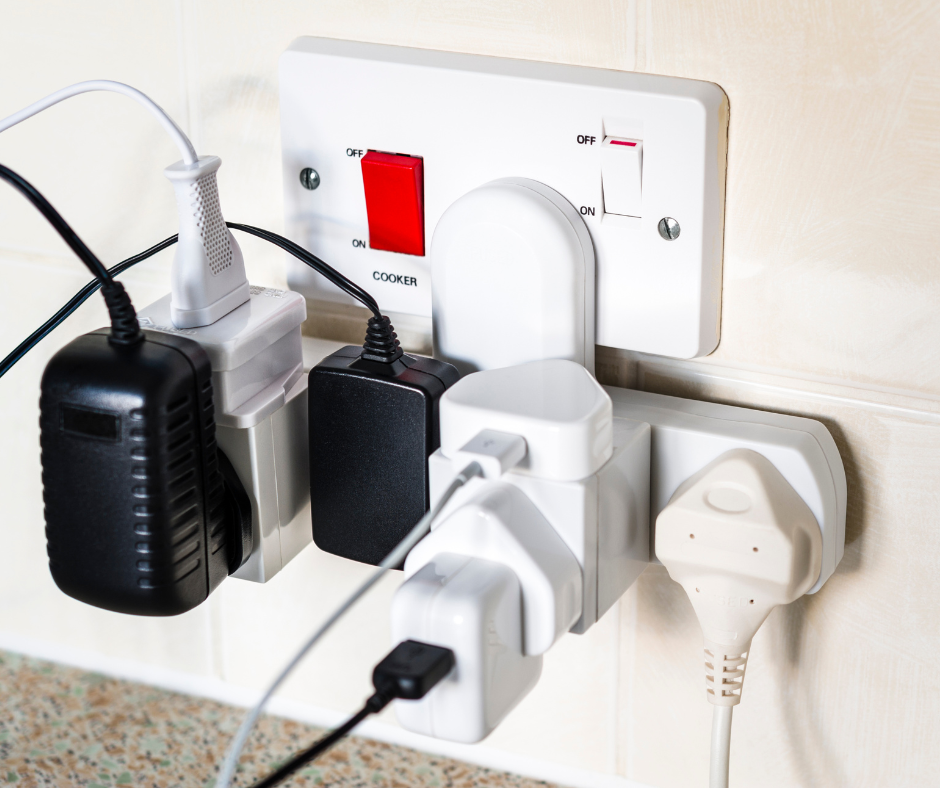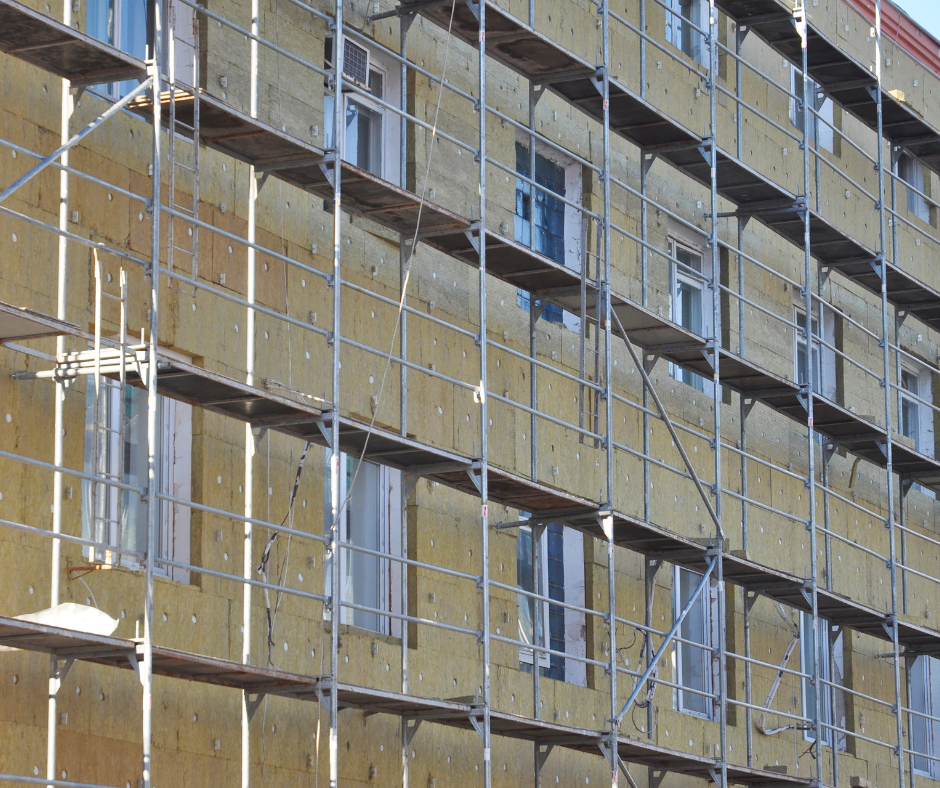Since the introduction of Covid-19 lockdowns there has been a surge in the number of people working from home. With the added benefits of savings on fuel, travel, and time this trend has since continued becoming more and more popular and in fact being promoted by companies and employers.
In many cases this resulted in setting up home offices and additional equipment to enable working from home remotely. Whilst most homes should be electrically safe and capable of taking on this additional equipment, in many instances these additional requirements may put a strain on the electrical installation.
Typically an office designed for work would be created with the requirement for this equipment in my mind and will have additional socket or connections. This may not be the case in a home which means the working space might only have access to one double socket and to accommodate additional equipment so good actors or extension leads would have to be used. this requirement would be to run additional sockets or extend existing circuits in order to accommodate it increased need. The use of plug adaptors and extension leads are hazard not easily distinguished or seen, these can resort in a fire, in an environment that also may not be equipped to deal with such hazards. For example having the correct extinguisher to hand or the necessary fire safety procedures.
In order to accommodate several items they can connected into a wall socket, the majority of individuals use extension leads in their houses together with four-way bar adaptors or plug in adaptors. Although there is room to plug in four appliances, this does not always imply that doing so is safe. In fact, overloading plugs is one of the most frequent causes of electrical fires.
As a result, even if plugging in a number of devices is needed, it might be a good idea to consider unplugging the ones you are not using.
Making sure you don’t exceed the extension lead’s maximum current rating will help you avoid overloading sockets to the point where it becomes unsafe. Doing so could cause the plug in the wall socket to overheat and eventually start a fire.
Additionally, it is suggested that households only use one extension lead per socket. Plugging an extension lead into another or a wall multi way plug in should be avoided at all times.
Instead of utilising a block adaptor, Electrical Safety First, experts in electrical safety, advise using a multi-way bar extension lead as this will less demanding on the power demands from a wall socket. Also as extension leads are fitted with an additional fuse they provide an added layer of protection that the block adaptor does not
Socket Overloading Danger Signs To Look Out For:
In the UK, there are about 20,000 home fires per year. Fires that result in between 60 and 70 fatalities and a quarter of a million injuries. Numerous appliances in modern houses, all of which might be dangerous if not used properly, require regular maintenance and testing. The issues/accidents frequently occur when these, otherwise fully safe, appliances are connected together and overload a socket; this is where the majority of home fires start. Below is a list of some of the sign that can indicate a problem and paying attention to them, can help avoid a major incident.
- Smell of burning plastic around plugs, extension or sockets
- Smoke or sparks coming from an appliance, equipment, sockets or extensions
- Burnt or scorching marks around plugs or sockets
- Damaged cables and leads
- Melted plastic or cable
- Intermittent or continuous tripping of circuit breakers or RCDs
Best practice guides to avoid overloading sockets and prevent and fires
It is important to check the rating of the extension lead, most are rated at 13amp but some maybe rated 10amps or lower and you should never plug in appliances that together exceed this rating. For example a 3 kw kettle is rated at 13 amp, using an extension lead rated at 13 amp to plug in this kettle, a toaster rated at 6.5 amps and a microwave also rated at 6.5 amps is exceeding the safe rating of the extension by 100%. The appliances are now demanding twice the amount of power to pass through the extension lead that is designed for and will cause it to overheat, this will at best cause damage and at worst a fire.
In addition the National Electrical Safety Council recommends:
- Do Not Overload outlets and do not exceed a maximum of a total of 13 AMPS into 1 outlet
- Unplug high rated appliances from the outlet when not in use
- Do not run extension leads under carpets or rugs as they can over heat.
- Do not plug 2 pin European plugs into 3 pin sockets without using a European adaptor plug.
Below is a list of high usage appliances that should never be plugged into an extension and combined together
- Kettles
- Irons
- Hair Dryers
- Microwaves
- Tumble Driers
- Slow Cookers
- Washing Machines
- Electric heaters
- Toasters
- Fridge Freezers
- Dishwashers
Final Thoughts
If you know that you’ll be working from home for a long period of time or permanently a better and more long-term solution is to have additional sockets installed. When installing a new socket another fact worth considering is paying slightly more for sockets that incorporate two USB outlets. This will provide additional charging points and free up two spaces for other items that may need to be plugged in.
Just like the consideration for fire safety regulations in a place of work, the home office is now effectively a workplace and other considerations need to be made such as PAT testing requirements. Whilst the regulations and requirement for these can vary, it is always good practise to inspect the condition of the electrical equipment and carry out a thorough visual inspection before an electrical appliance or equipment is used. Visual inspection should not be limited to the appliances and equipment alone but should extend to the condition of the electrical sockets and outlets aswell. burning or melting smells, smoke or damage are some of the visible signs of danger within electrical equipment, cables and fittings. These should be remedied or further inspected by professional before they are used again.



